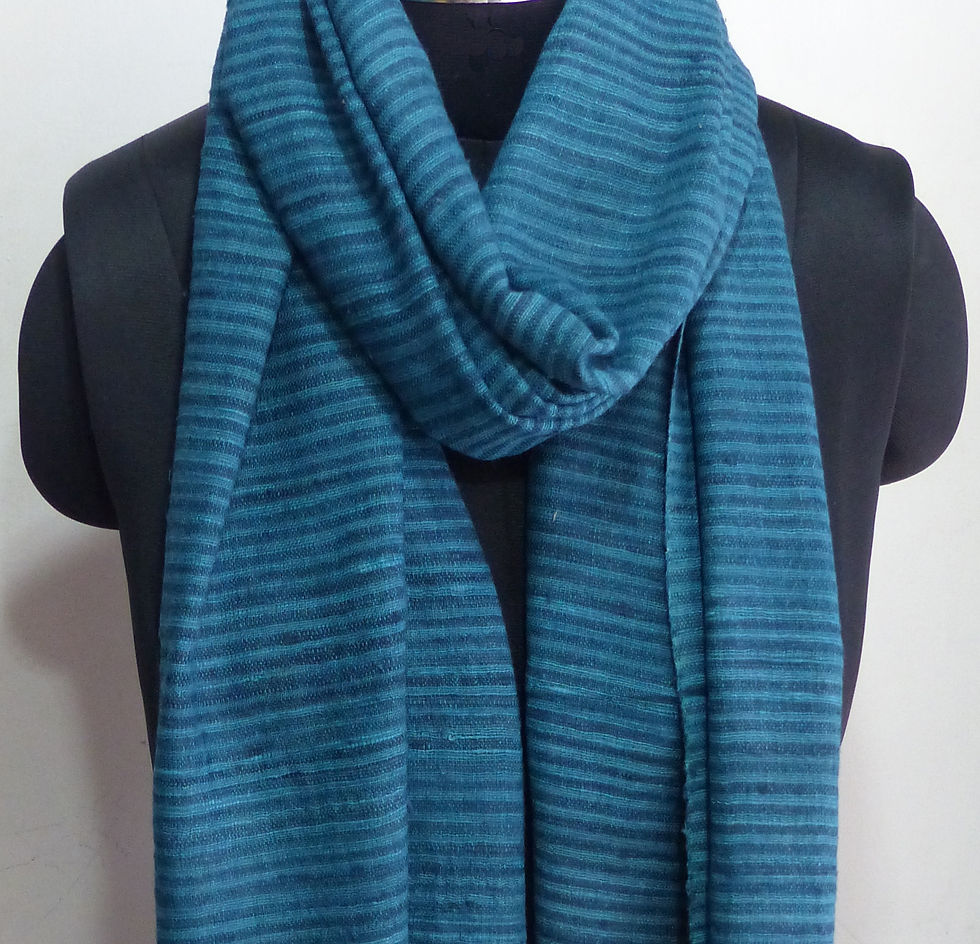Panna Devi is Ill
- MESH

- Apr 29, 2021
- 3 min read
Updated: Mar 15, 2022

An Unsettling Preface
My colleague Gabriel, had collected the interview with Panna (pictured above) and whilst I brought it together for the blog I thought to check a detail from Sakhi, the woman overseeing the production unit at Little Flower Leprosy Colony. Our phone conversation was unsettling as she told me that Panna Devi is really very ill at the present time. There is a lot of fever in the leprosy colony which is most probably covid 19. One of the handloom workers has tested positive and the unit has been shut down. Other people with fevers don’t want to get tested, they are afraid of the disease and the stigma associated with it. There is a mission hospital nearby converted to a covid hospital but instead of going there many colony families go to some local quack who gives them an injection to temporarily relieve their fever. It is a frightening time, most will recover well but for Panna this is another challenge to be faced
--------
Many of the artisans making the things that we sell are women and we are enormously proud of their skills and attitudes towards the challenges of life. Over the next few weeks I thought I would tell you about some of them.
First in the series is Panna Devi, this delightful peppy-looking woman pictured with two of her children. She is a silk spinner, taking the balls of eri silk in one hand and drawing out the threads whilst turning the spindle by a foot treadle. She works in Little Flower Leprosy Rehabilitation Centre, Sunderpur, right up on the border with Nepal in Bihar. When we asked her where she was from this is what she told us:

PANNA: I was born near Motihari, Bihar. I came to Sunderpur when I was affected by leprosy and I was admitted in the hospital where I met my husband who was working there. I have three children and I live in Sunderpur now.
MESH: How long have you been working here?
PANNA: I have worked here for 7-8 years. I do the hand-spinning. I make eri silk yarn from eri cocoons. I have always done this. I was married and then I started working here. Hand spinning is the only skill I have.
MESH: How much are you paid for doing this work?
PANNA: I earn between 2500-3000.00 Indian Rupees per month and I receive a disability pension. My housing is free and when my children are older they will get freely educated in the school here.
MESH: What do you do with the money you earn?
PANNA: I spend it on my children, I run the house. Working here is important , that’s why I do it. If I don’t earn I can’t survive. My husband drinks every night and doesn’t work at all. We are dependent on my income.
MESH: has anything changed since you came to work here?
PANNA: I have found friends here. I don’t have any dreams I had leprosy but it hardly affected my life, it was good then and it is good now.

The silk yarn that Panna spins is used by weavers in the same unit to make scarves. They are not shiny and smooth like we often think of silk scarves, but slubby and full of texture, great in the summer and winter and since the silkworm does not have to be killed to make the silk they are great for vegans. The silk scarves are available in our shop in Uday Park, New Delhi and we export many hundreds every year to fair trade organizations around the world.
Panna, who says she doesn’t have a dream is contributing to the export earnings of her nation. That such a small community in a far off corner of India should make beautiful scarves that are bought by people in Japan and Europe, Canada and Germany is like a dream and is a credit to Panna and her fellow women artisans.

We pray Panna will make a good recovery and we look forward to hearing that the unit is open again.




Comments